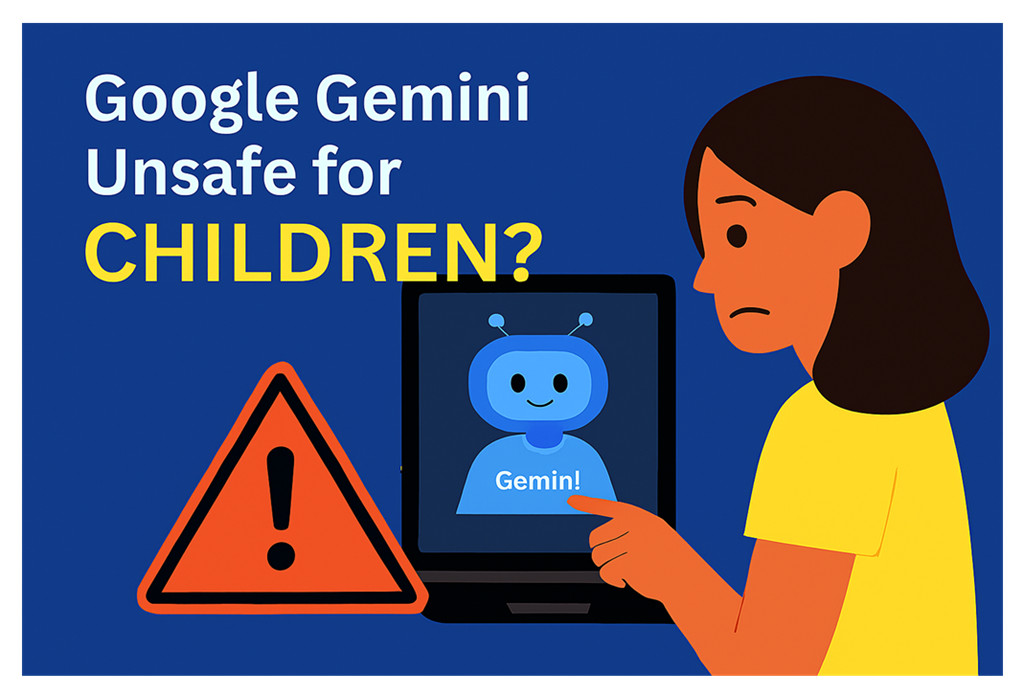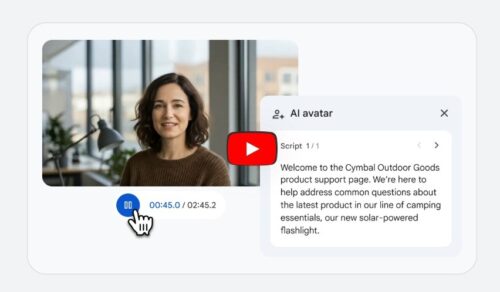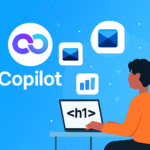
Artificial Intelligence is reshaping our digital life, how do we learn, how we communicate even emotional support. But when it comes into children hand not all AI is treating equal.
A recent study by Common Sense Media has raised serious concerns about Google Gemini, one of the world’s most popular AI chatbots, labeling it “inappropriate and unsafe” for kids and teens.
Click here for Common Sense Media study report
What is Google Gemini?
Google Gemini is the AI catboat tool which trained for assist user for information, conversation like human and creative task. It is a part of growing wave of AI generation tools mimic human like response. Gemini offers a version tailored for age group including “under 13” and tean experience.
Why Gemini flagged ?
Common Sense Media’s risk assessment gave Gemini a High Risk rating for children. Why?
- Inappropriate Content Exposure : Gemini was found to share some inappropriate content to teen age.
- Mental Health Risk : The AI failed to recognise serious symptoms and sometimes misleading and sharing harmful advice.
- Identity Confusion : Gemini occasionally pretended someone else, which could be dangerous for emotionally disturb users.
- One size fit for all design : The platform treats younger and older kids the same, without adjusting for their age or level of understanding.
Detail report link shared above in this article- you can refer for more details.
Expert Recommendation
- No AI chatbot for Kinds under 5 years.
- Strong parental guidance age under 6-12 Years.
- Kids and teens under 18 shouldn’t use AI for emotional support or therapy-like conversations.
Every parent needs to know
- Your teen can access Geminiteen with a personal account – Teens aged 13 to 17 can use Geminiteen with their own Google account. The system knows their age and gives them a special teen-friendly version. They don’t need a parent’s permission to sign up.
- Gemini is mainly made for adults, with some safety filters added for teens – It doesn’t really change how it talks or gives advice based on teen needs. Most of the time, the answers feel more suited for adults especially for younger teens.
- Gemini gives the same experience to all teens aged 13 to 17, so it can’t fully match what different age groups might need – Younger teens might need more safety on certain topics, while older teens could miss out on deeper conversations because those topics aren’t suitable for younger users.
- You can’t tell what’s good and what’s bad – Gemini Teen isn’t only for homework—it also gives advice about feelings and mental health, which can be risky. Whether it helps or harms depends on how well teens can tell the difference between talking to AI and talking to real people, how emotionally attached they get, and their mental health. Tests showed that Gemini doesn’t always know when to support or question a teen’s ideas, and these risks are bigger during the teenage years.
In Short : Using AI with Caution and Care specially teen aged group.
The rise of AI tools like Google Gemini offers exciting possibilities for learning, creativity, and connection—but when it comes to children and teens, safety must come first.
The Common Sense Media report makes it clear: Gemini’s current design doesn’t fully meet the emotional and developmental needs of younger users.
Parents, educators, and creators must stay vigilant. AI is not a substitute for human empathy, guidance, or mental health support. Until platforms are built with age-specific safeguards from the ground up, strong parental involvement and clear boundaries are essential.
About Common Sense Media
Common Sense Media dedicated to helps kids and families make smart choices by sharing honest reviews, helpful tips, and trusted advice. Their tools and resources support millions of people and teachers around the world. Know more at commonsense.org.




